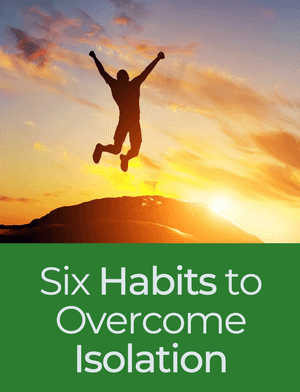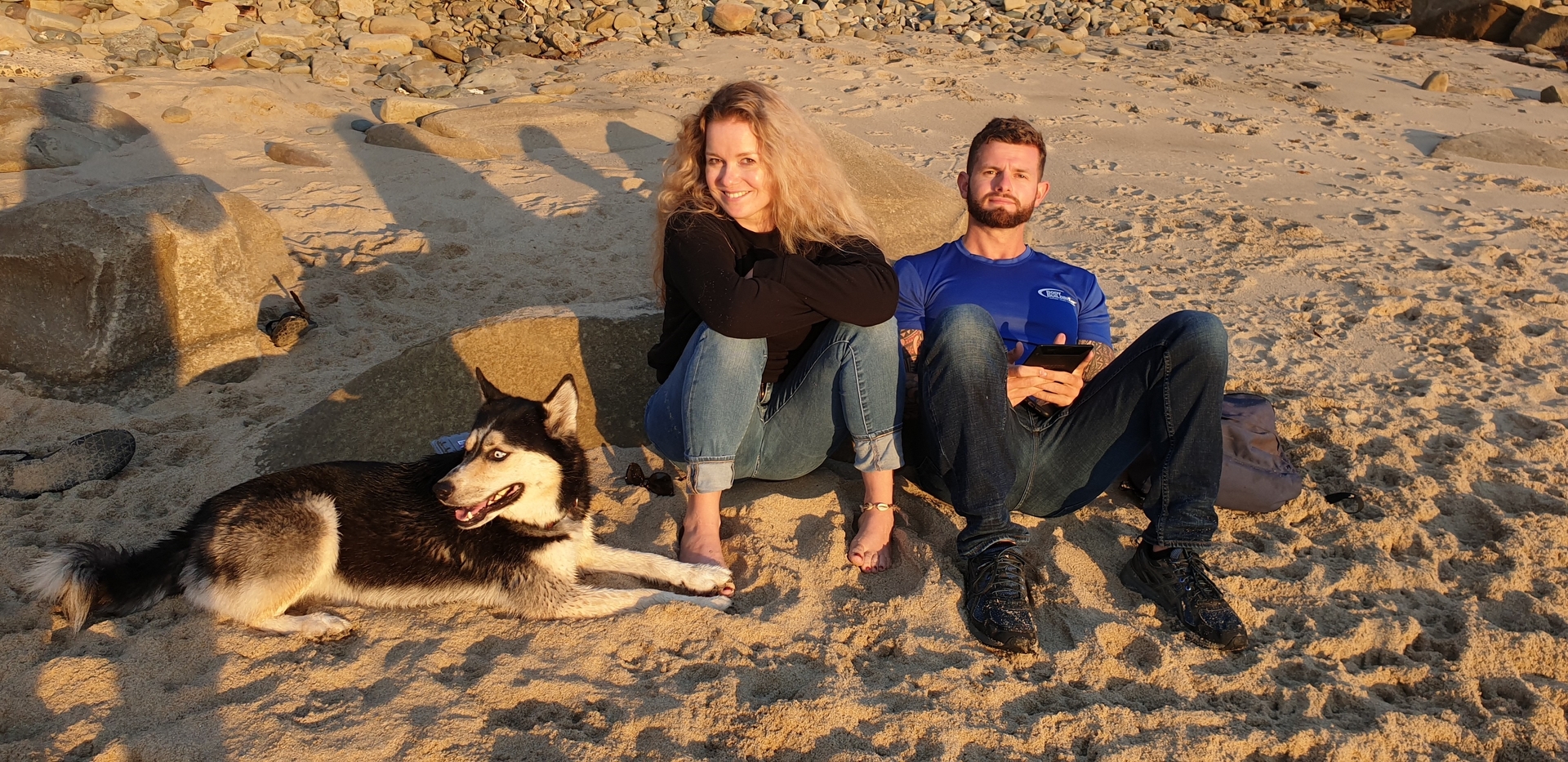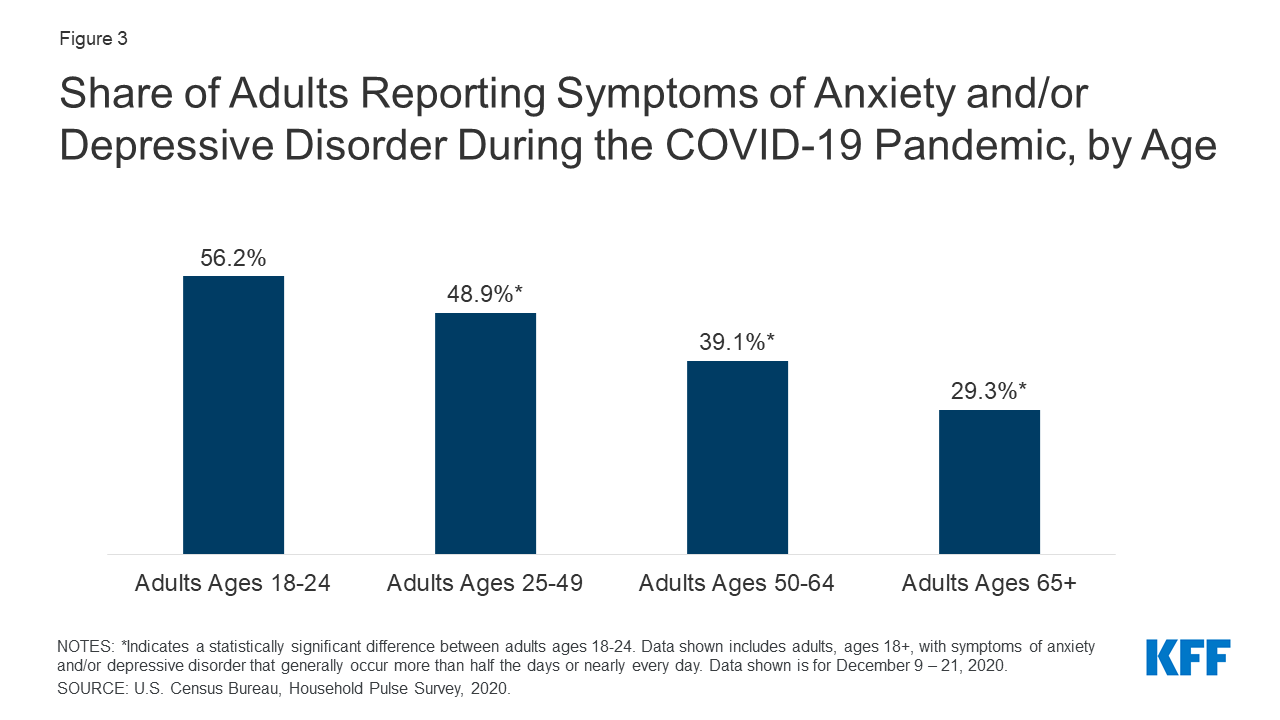
Get the Six Habits for Overcoming Isolation Guide for free


Anxiety and depression are on the rise globally. In 2018, almost 50,000 Americans lost their lives to suicide, an increase of 14% since 2000, and on average over ten million adults reported having serious thoughts of suicide in the year prior.
Listen to the podcast version here
One may expect the older generations to bear the worst of the brunt. But research has found that compared to all adults, young adults are more likely to report substance use (25% vs 13%) and suicidal thoughts (26% vs 11%).
During the pandemic, about 4 in 10 adults in the U.S. reported symptoms of anxiety or depression, up from 1 in 10 adults the year before the pandemic. Many adults reported negative impacts on their well-being such as difficulty sleeping or eating, and increases in alcohol consumption or substance use.

My therapist once told me: "Anxiety, depression, and ADD are all riding in the same car. It is my job to determine which one is in the driver's seat and treat you accordingly."
Anxiety and depression are two of the most common mental health conditions and are easily confused. While there is some overlap in symptoms and they do often occur simultaneously, anxiety and depression are actually very different types of "disorders". Nearly half of all people diagnosed with depression are also diagnosed with an anxiety disorder.
Anxiety is a general fear of what is going to happen, or could happen in the future, and is characterized by thoughts of worry and a general belief that something bad will happen.
Depression is a mood disorder that's more than just feeling down or having a bad day, it causes overwhelming feelings of sadness and occasionally thoughts of suicide. These feelings are persistent and interfere with daily functioning, resulting in feelings of hopelessness and worthlessness.
Note: I take the word "disorder" to mean that the world does not know how to accommodate us. There are many things wrong with the world we live in, and there is absolutely nothing "wrong" with you.
Anxiety presents itself in feelings of restlessness, difficulty concentrating, nausea, panic attacks, social isolation, fatigue, sweating, obsessive thought patterns, insomnia, irritability, and changes in appetite.
Depression causes feelings of sadness, irritability, losing interest in the things you enjoy doing, restlessness, unexpected headaches and pains, fatigue even after sleeping, having a difficult time remembering things, an inability to make decisions, feelings of guilt or worthlessness, and perhaps even thoughts of self-harm.
The causes of anxiety and depression aren't fully understood by modern science yet. Life experiences such as traumatic events have been shown to trigger these disorders, but inherited traits or medical causes such as disease or drug abuse can also be a factor.
Those who experienced trauma or witnessed traumatic events are at higher risk of developing anxiety and depression disorders. It is important to remember the key to trauma isn't the severity of the event, but our perception of our ability to cope with it. Therefore, something that seems minor to one may significantly impact the quality of life of another. There is no comparison, pain is pain.
Stress due to health issues such as illness can cause significant worry about your treatment and future. If you have ever dealt with a significant health issue before, such as back pain or surgery, you must certainly be aware of how much it can build your stress levels.
You may also be at a higher risk of developing anxiety and depression if you have a family history of anxiety, depression, or another mental illness. Many mental health conditions are hereditary and generally don't become prominent until early adulthood.
When you feel anxious or depressed, neurotransmitters relay impulses to your sympathetic nervous system, causing your muscles to contract and your heart rate and breathing to increase. Blood flow is also redirected from your abdominal organs to your brain.
Persistent feelings of anxiety can make us sick to our stomachs, causing cramps or other digestive issues leading to pain, diarrhea, or constipation. The nerves that regulate digestion are hypersensitive to stimulation and thus anxiety has been linked to conditions such as irritable bowel syndrome and functional dyspepsia (upset stomach).
Research shows that adults with heart disease, as well as an anxiety disorder, are twice as likely to have a heart attack than those who don't have an anxiety disorder.
Those with depressive disorders are more likely to gain weight or become obese. The state of being overweight increases the risk of developing high blood pressure and predisposes you to unhealthy levels of cholesterol and triglyceride levels, all of which further increase your chances of developing heart disease and type-2 diabetes.
Depression also commonly manifests in chronic pains such as headaches, back pain, arthritis, and fibromyalgia. This creates a self-enforcing cycle of chronic pain increasing depression, and the depression itself causing more physical pain.
I have become much more aware over the years of how depression and anxiety manifest in my body. I personally endure spondylosis, scoliosis, and nerve impingement. I have come to the realization that loneliness causes me to feel overwhelmed more easily, and the state of overwhelm induces more anxiety.
The anxiety in turn feeds depression and the combination of the two causes severe backpain to the point where I cannot use my body the way any other person could. It isn't fair, but it's what I got, and awareness has allowed me to make the most of it.
Now that we've established the differences between anxiety and depression, how they manifest in our bodies, and what the long-term effects are, let's dive a little bit into how to actually deal with these disorders in our daily life. I am not a doctor and cannot give medical advice, but I can share my personal experience and what has worked for me.
One of the best things you can do for yourself is to seek out therapy. Even though you may feel whatever you are experiencing is unique to you, therapists are professionally trained to make observations you are not able to make yourself.
Every person and every situation is highly unique, but I have learned from personal experience that there are certain patterns a skilled professional will be able to help you uncover.
There are many different options of therapy, to the point where the sheer amount of them seems overwhelming. There's CBT, EMDR, somatic and psychodynamic therapies, IPSRT, and the list goes on. How do you know which one is right?
The truth is that you're not going to know what works for you until you try it. Research the various treatment options available and start with whatever resonates most with you.
I initially tried CBT which I found cumbersome, and while living in Columbus, I saw an EMDR therapist who helped me uncover a great deal about my inner child and the fears he has. I am now able to recognize when this scared child surfaces and treat it with love instead of trying to disown it.
When it comes to medication, there are multiple options for treating anxiety and depression. The ones most of us are familiar with are SSRIs, which increase the availability of serotonin in the body, such as Zoloft and Lexapro.
SSRIs need to be taken for 2 to 4 weeks before the benefit is felt and should always be under the supervision of a medical professional. I personally used Lexapro during a time of high turbulence in my life in order to find my footing, but I did not consider it a suitable long-term therapy for myself as it merely served to suppress symptoms rather than resolve the underlying issues that were the root of my problems.
There are also other options, such as Trycilics and Benzodiazepines (Xanax). I don't have any experience with these types of medication, but if you feel like nothing has worked so far, you may consider taking to a psychiatrist to learn more about your options.
The foods we consume will one day make up the cells of our body. Therefore, we must be very considerate of what we put in our mouths. Some foods will exacerbate mental health conditions (how could they not?), and others will give your body what it needs to be healthy.
Eat some protein for breakfast, doing so will keep you satiated for longer and helps keep your blood sugar steady throughout the start of the day. Stability equals less overwhelm, and less overwhelm equals better mental health.
Avoid simple carbohydrates such as sugary foods and drinks, which only serve to destabilize your energy levels, and eat complex carbs such as whole grains, which have been shown to increase serotonin naturally.
Drink about a gallon of water a day as even mild dehydration has been shown to affect your mood. An easy way to do this is by buying a large water bottle, filling it up in the morning, and making sure you finish it by the time you go to bed.
Limit or avoid alcohol as the immediate effect of alcohol may feel calming but truly wreaks havoc on your body. Even mild alcohol consumption has been shown to interfere with sleep, which is critical to maintaining a healthy brain.
Eat balanced meals consisting of fresh fruits, beans, berries, nuts, and vegetables. Foods such as red beans, apples, blueberries, walnuts, kale, spinach, and ginger have high levels of antioxidants and help ease the symptoms of anxiety and depression.
You may also consider natural supplements for anxiety and depression, such as Omega-3 Fatty Acids and Theanine but taking these in isolation won't be as effective as consuming healthy meals. Supplements are supposed to do just that: supplement an already healthy and balanced diet.
After spending thousands of dollars on courses, books, retreats, treatments, and various other resources over the years, I have picked up a few habits that helped me reduce anxiety and depression in my own life. Some may be of benefit to you, some may not. Once again, you simply have to try things and see how they work for you.
Studies have shown that people who do yoga regularly have increased activity in the cerebral cortex and hippocampus, areas associated with information processing, learning, and memory. Yoga helps you form new connections in your brain, resulting in improved cognitive skills and helps you release pent-up feelings of frustration by moving your body.
Journaling can relieve stress by helping you work through anxious and sad feelings. Oftentimes we don't understand why we feel a certain way, and that only tends to aggravate the feelings. Journaling is a way to gain awareness about how your thoughts and emotions relate, similar to therapies such as CBT, and awareness gives you the ability to cope better.
Practice good sleep hygiene by establishing a healthy sleep routine and prioritizing restful sleep on a daily basis. Poor sleep has a strong effect on mood, partially because the neurotransmitters needed to support a healthy mood are replenished during sleep. Restorative sleep allows you to maintain a balanced brain, which in turn alleviates anxiety and depression.
Get outside in nature regularly to disconnect from the busy and overwhelming world we live in. Overwhelm only serves to make you more sensitive to feelings of anxiety and sadness, and the only way to rid yourself of overwhelm is by fully disconnecting. Find a trail nearby or simply go on a walk while leaving your phone at home.
If you believe this information can benefit anyone you know, please don't hesitate to share this blog post. You can also sign up for my newsletter on the bottom of this page to receive blog updates (never spam), and you will receive the 2022 React Developer Roadmap for free.

Get the Six Habits for Overcoming Isolation Guide for free